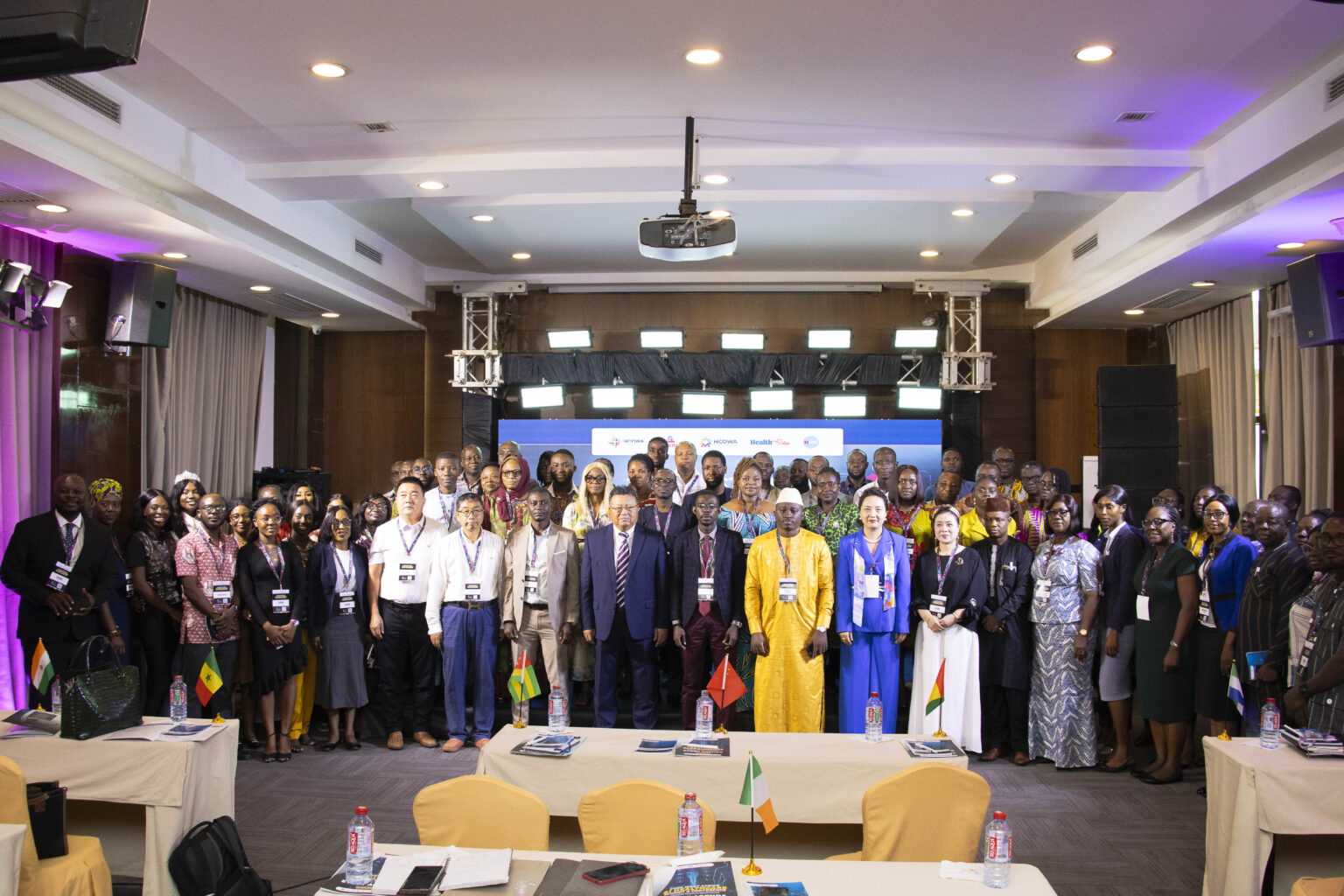Stakeholders from across West Africa convened at the Tang Palace Hotel in Accra on January 17, 2025, for the 2025 West Africa AI Healthcare Conference and Summit to explore the integration of Artificial Intelligence in healthcare to ease the burden on senior professionals and medical staff.
The 2025 West Africa AI Healthcare Conference and Summit, themed “Promoting the Regional Integration of AI in Healthcare to Enhance Service Delivery,” brought together nearly 150 participants, including healthcare professionals, policymakers, and industry leaders from Ghana, Togo, Sierra Leone, Burkina Faso, Nigeria, Niger, Guinea Conakry, Senegal, Côte d’Ivoire, and Liberia.
The conference addressed the region’s persistent healthcare challenges, including shortages of medical professionals, limited access to diagnostic tools, and the growing burden of both communicable and non-communicable diseases.
In her keynote address, Sihong Jiang, President of HCOWAA, emphasized the urgency of leveraging AI to improve healthcare delivery across West Africa.

Sihong Jiang, President of HCOWA Association delivering an insightful speech
“AI offers a unique opportunity to bridge gaps in healthcare systems by addressing resource shortages, enhancing efficiency, and delivering personalized care at scale,” she said.
Jiang highlighted that AI systems proposed by HCOWAA are 99.9% accurate, making them a reliable tool for tackling pressing healthcare issues.
Jiang also outlined a roadmap for integrating AI into the region’s healthcare systems, including establishing AI treatment departments in hospitals, creating a National Disease Control Center to track and manage outbreaks, and deploying an AI-powered medical supply chain system to prevent stockouts and improve efficiency.
“First, we are planning to initiate AI Treatment Departments in hospitals together with our partners. These departments aim to utilize advanced AI systems to enhance healthcare delivery by supporting the diagnosis of diseases and managing minor illnesses more efficiently, addressing workforce shortages in the process.
“Second, through the AI system, we can control and monitor specific diseases regionally, enabling better management and treatment of similar conditions. By utilizing a National Disease Control System powered by big data, health data from hospitals, clinics, and laboratories can be centralized for real-time tracking.
“Third, the introduction of an AI Medical Supply Chain System will transform how medical supplies, reagents, and equipment are managed. This innovative system will monitor inventory levels in real time, ensuring hospitals avoid stockouts, especially during emergencies,” she explained.
The event featured remarks from key stakeholders, including the President of the Ghana Medical Association (GMA), Dr. Frank Serebour, who described AI as the future of healthcare. He urged regulatory bodies like the Health Facilities Regulatory Agency (HeFRA) to ensure that AI systems introduced in the region are properly licensed and meet professional standards.
He stated that integrating AI into Ghana’s healthcare system could significantly reduce mortality rates, ensure better management of illnesses such as hypertension and diabetes, and enable faster and more accurate diagnoses. He called on the government and stakeholders to collaborate with HCOWAA to make the vision of AI-driven healthcare a reality in Ghana.
He commended the initiative, urging HCOWAA to expedite the introduction of its AI medical solutions to improve the country’s healthcare sector.
Nigeria’s High Commissioner to Ghana, Ambassador Dayo Adeoye, praised the initiative, noting that AI could play a vital role in addressing the shortage of healthcare professionals in Ghana and other parts of West Africa. He called for sustained collaboration between countries to maximize the benefits of AI in healthcare.

Mr. Tang Hong, fourth from left, Sihong Jiang, fourth from right with West African stakeholders
China’s First Counselor in Charge of Economic Affairs, Li Yaohong, reaffirmed China’s commitment to supporting healthcare advancements in West Africa.
“Adopting AI technology is critical for addressing systemic challenges, and the Chinese community stands ready to contribute to this integration,” he said.
The event received significant support from key Chinese organizations, including the Sichuan Provincial Administration of Traditional Chinese Medicine, Health Commission of Sichuan Province, Sichuan Provincial Association for Traditional Chinese Medicine, Sichuan Medical Association, and the China Council for the Promotion of International Trade Sichuan Council.
Additional backing came from the Sichuan Chamber of International Commerce, Chengdu Wenjiang High-Tech Industrial Park, Department of Commerce of Hunan Province, China Council for the Promotion of International Trade Hunan Sub-Council, Hunan University of Medicine, China-Africa Economic and Trade Promotion Council, Yuhua Administration of the Changsha Area of the China (Hunan) Pilot Free Trade Zone, and Hunan University of Chinese Medicine.
Presentations were made on the following topics: AI Diagnostics and Bridging Healthcare Gaps, Digital Imaging in Healthcare, AI-Powered Chinese Traditional Medicine Treatment, AI for Disease Control, Revolutionizing Healthcare with AI-Powered Medical Supply Chains, Harnessing AI to Transform Healthcare Delivery in Ghana and West Africa, and an Overview of HCOWA Association and its Upcoming Event.
The conference concluded with a strong call for actionable steps to turn the vision of integrating AI into healthcare into a reality across West Africa.



